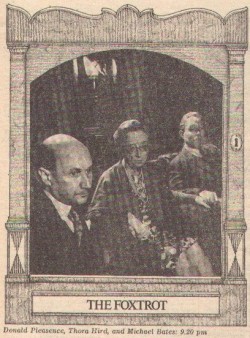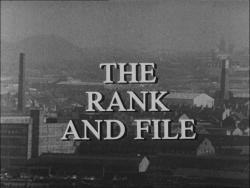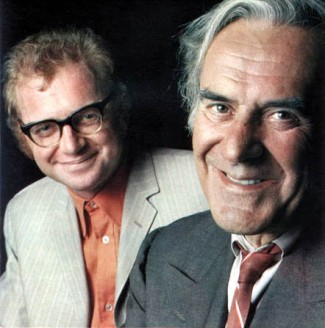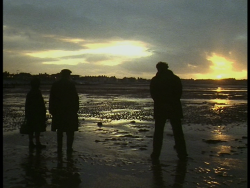DAVID ROLINSON
Play for Today Writer: Rhys Adrian; Director: Philip Saville; Producer: Irene Shubik
“I have a great fondness for the past, the way things were.”

The Foxtrot offers further proof of the wide variety of approaches and subject matter in Play for Today: a self-aware sex comedy about a ménage-a-trois between Michael Bates, Donald Pleasence and Thora Hird is far removed from the intensity and political commitment of plays from the same period such as When the Bough Breaks and The Rank and File. However, newspaper reviews were mixed – stressing its strengths and weaknesses, praising some elements and criticising what some saw as its self-awareness and obscurity. Given that some reviewers used The Foxtrot to question the very purpose of Play for Today as a strand, the following essay uses newspaper reviews of The Foxtrot – depending more heavily on reviews than the site’s essays usually do – in order to trace some of the ways in which Play for Today was a contested space.1
Continue reading “The Foxtrot (1971)”
The essay’s focus is on reviewers’ contestation but subsequent studies should develop the idea, at the very least into archival holdings on audience and institutional responses. ↩



